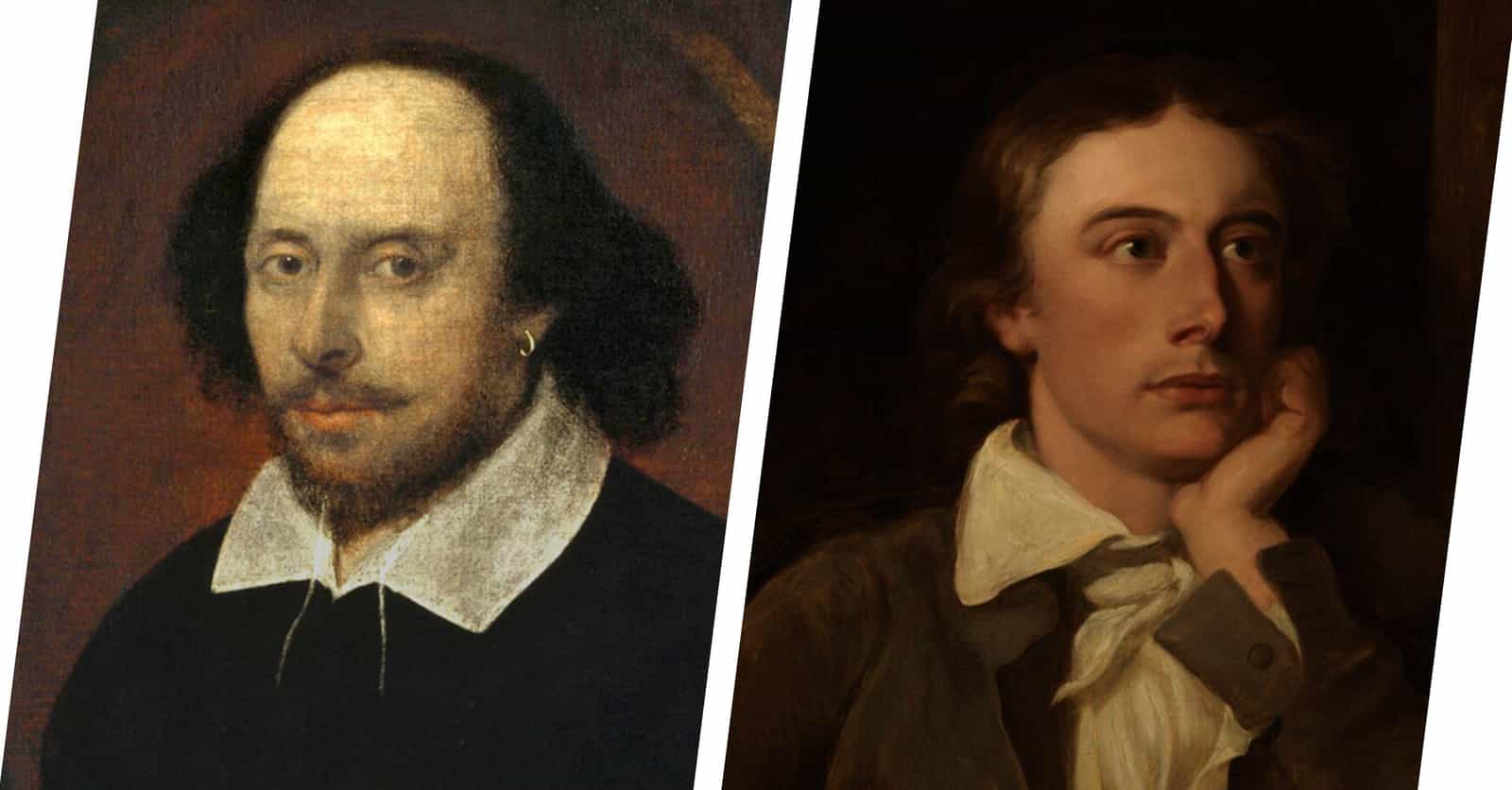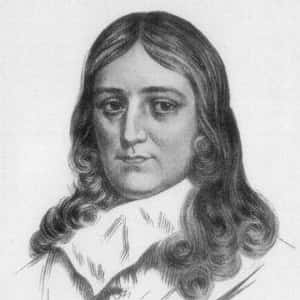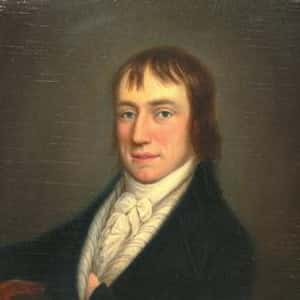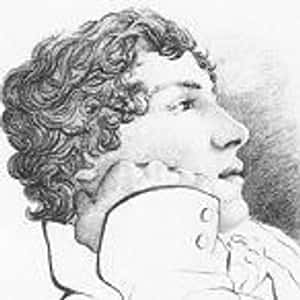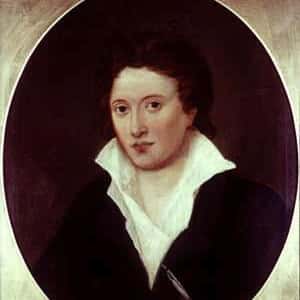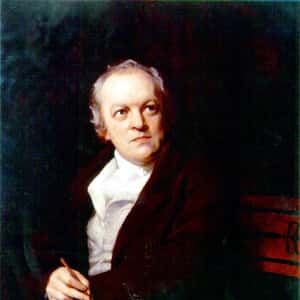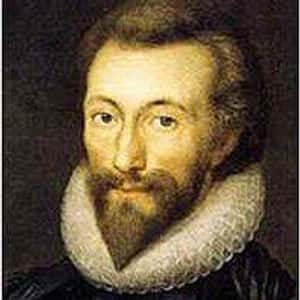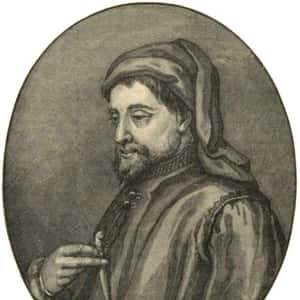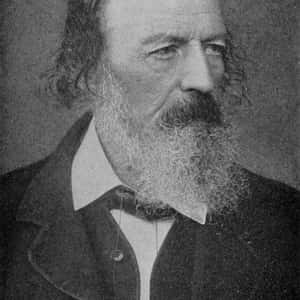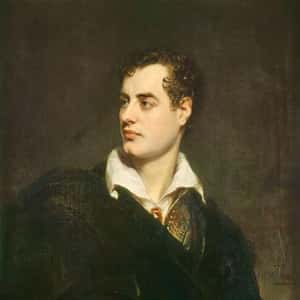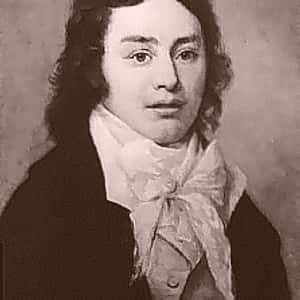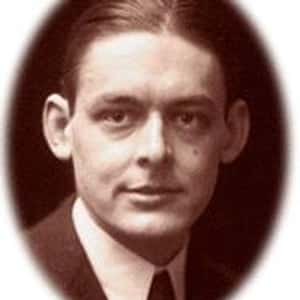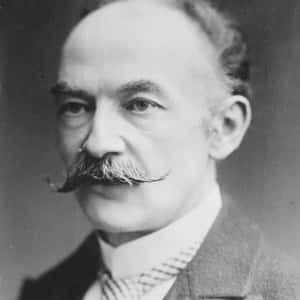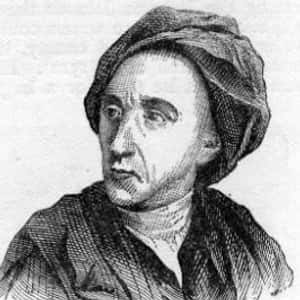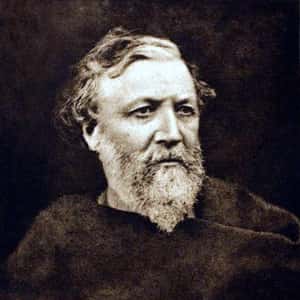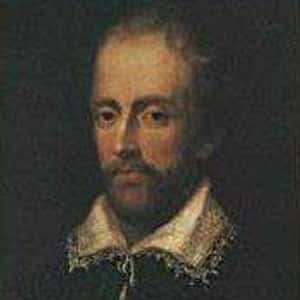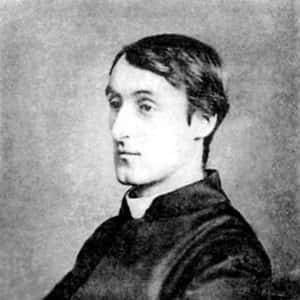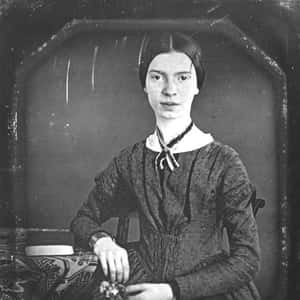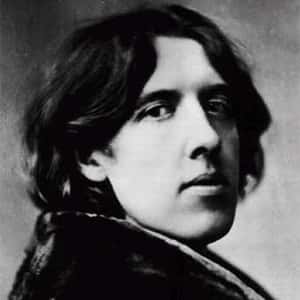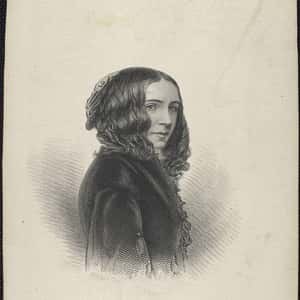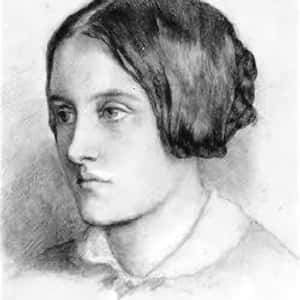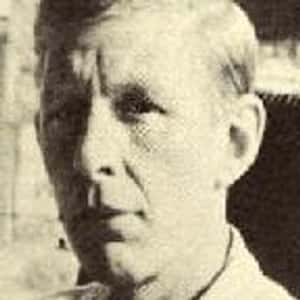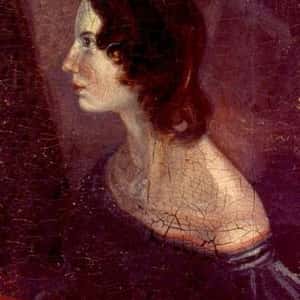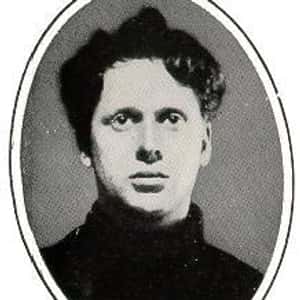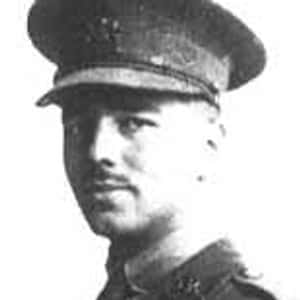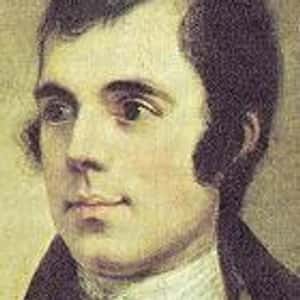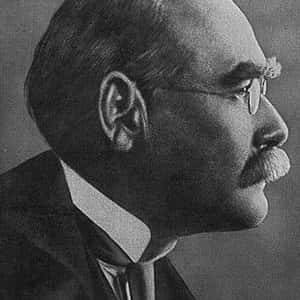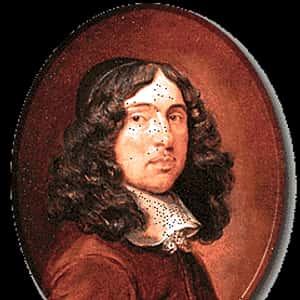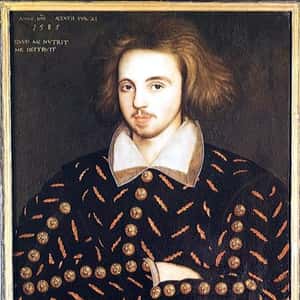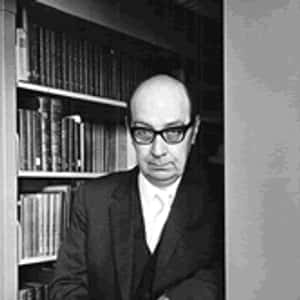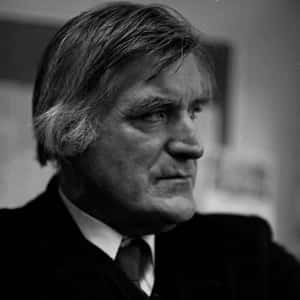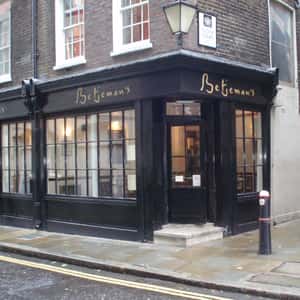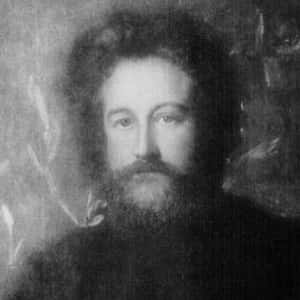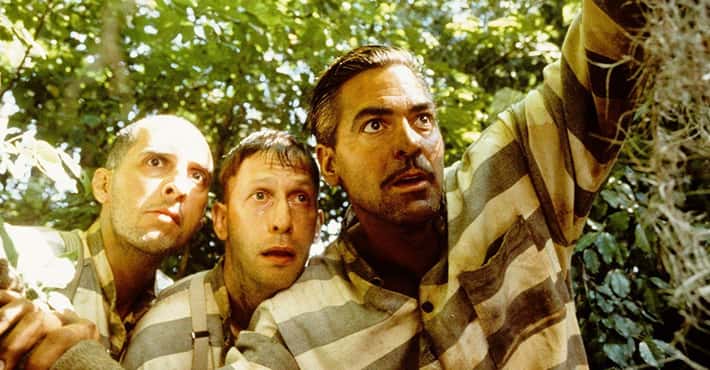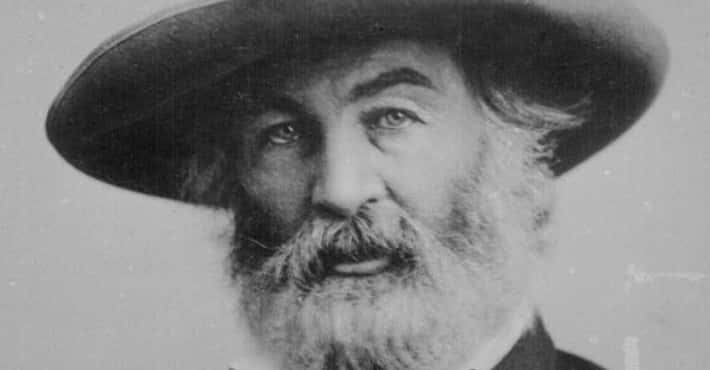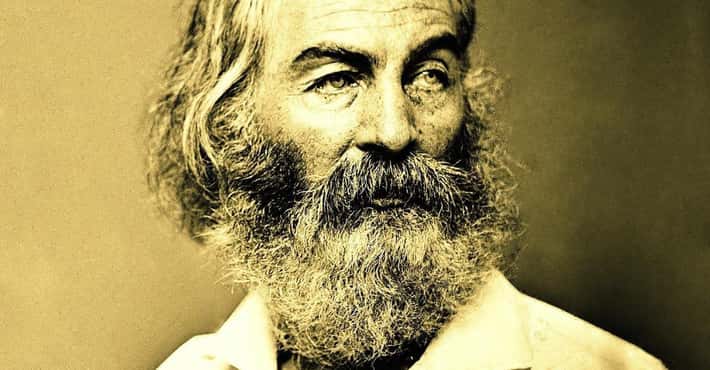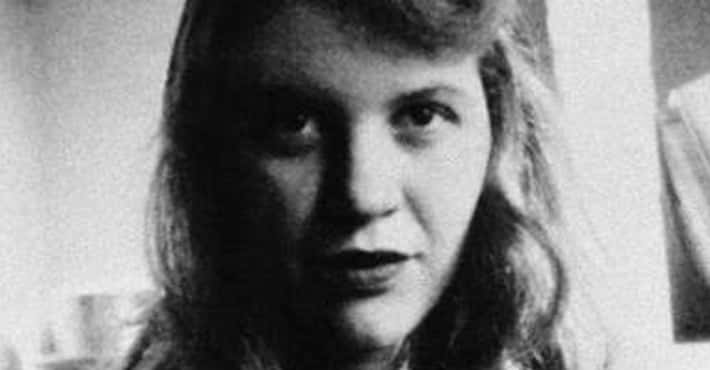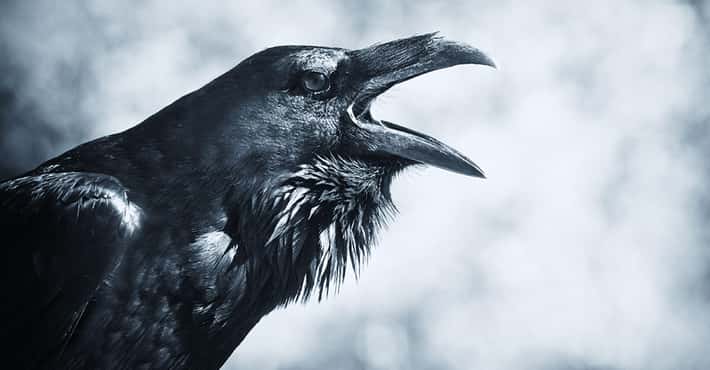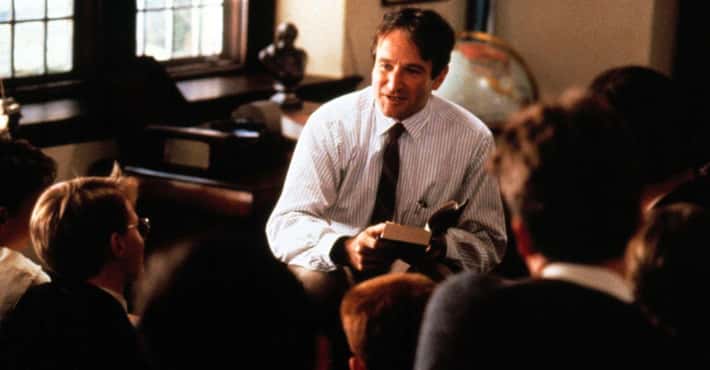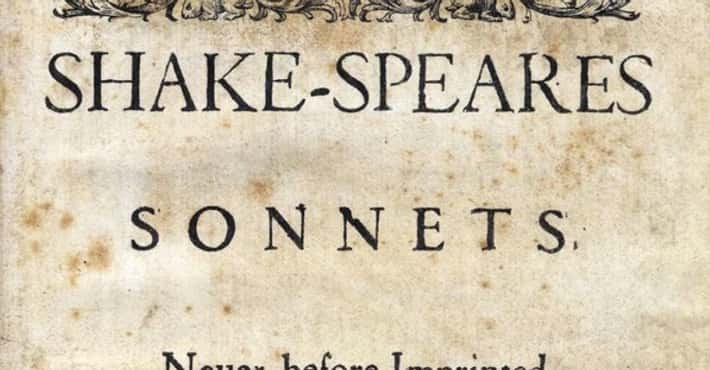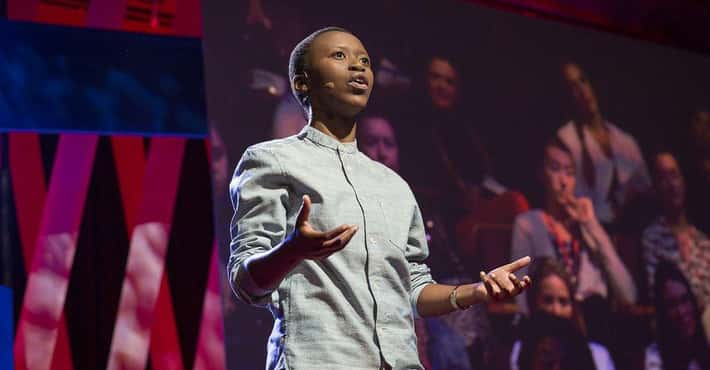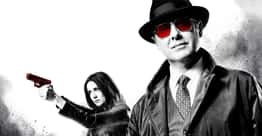The Best English Poets of All Time
- Shall I compare thee to a summer's day?, My mistress' eyes are nothing like the sun, All the World's a Stage
William Shakespeare, the Bard of Avon, is renowned for his plays, but his poetic prowess is equally remarkable. His sonnets are considered some of the finest in the English language, exploring themes of love, beauty, and mortality with unparalleled eloquence and depth.
More William Shakespeare- Dig Deeper...The All-Time Best Shakespeare Characters
- And Deeper...335+ Famous Taurus Historical Figures
- #1 of 508 onThe 500+ Best Writers of All Time
- Paradise Lost, On His Blindness, How Soon Hath Time
John Milton, a 17th-century poet, is best known for his epic poem "Paradise Lost," which recounts the biblical story of humanity's fall from grace. A master of blank verse, Milton's work is characterized by its intellectual rigor and profound exploration of religious and political themes.
More John Milton- Dig Deeper...The Best John Milton Quotes
- And Deeper...195+ Famous Sagittarius Celebrities
- #38 of 508 onThe 500+ Best Writers of All Time
- I wandered lonely as a cloud, The world is too much with us, Daffodils
William Wordsworth, a key figure in the Romantic movement, revolutionized poetry by focusing on nature and the ordinary human experience. His magnum opus, The Prelude, is an autobiographical epic that traces his personal growth and development as a poet.
More William Wordsworth- #97 of 508 onThe 500+ Best Writers of All Time
- #428 of 752 onThe Greatest Minds of All Time
- #1427 of 3,182 onThe Most Influential People Of All Time
- Bright Star, Ode on a Grecian Urn, A Thing of Beauty (Endymion)
John Keats, a Romantic poet, possessed an extraordinary gift for sensuous imagery and emotional intensity. His odes, particularly "Ode to a Nightingale" and "Ode on a Grecian Urn," are celebrated for their vivid evocations of beauty and the transience of life.
More John Keats- #72 of 508 onThe 500+ Best Writers of All Time
- #18 of 342 onThe Greatest Poets of All Time
- #13 of 26 onWhat Famous Historical Figures' Graves Actually Look Like
- 5
Percy Bysshe Shelley
Ozymandias, Ode to the West Wind, To a SkylarkPercy Bysshe Shelley, another leading Romantic poet, championed radical ideas and the power of imagination. His lyrical works, like "Ozymandias" and "To a Skylark," convey a sense of wonder and challenge conventional beliefs about society, religion, and nature.
More Percy Bysshe Shelley- Dig Deeper...320 Famous Leo Celebrities
- #151 of 508 onThe 500+ Best Writers of All Time
- #39 of 72 onThe Hottest Dead Writers
- The Tiger, A Poison Tree, Auguries of Innocence
William Blake, a visionary poet and artist, defied convention with his prophetic works that blended mysticism, social criticism, and vivid imagination. His illuminated poems, such as "Songs of Innocence and Experience," reveal a unique perspective on the human condition and the divine.
More William Blake- Dig Deeper...195+ Famous Sagittarius Celebrities
- #91 of 508 onThe 500+ Best Writers of All Time
- #203 of 752 onThe Greatest Minds of All Time
- Dead Be Not Proud, For whom the Bell Tolls, No Man Is an Island
John Donne, a metaphysical poet, is renowned for his wit, wordplay, and inventive conceits. His passionate and often erotic love poetry, along with his deeply reflective religious verse, demonstrates his mastery of both intellectual and emotional expression.
More John Donne- #132 of 508 onThe 500+ Best Writers of All Time
- #74 of 123 onThe Best Gay Authors
- #7 of 342 onThe Greatest Poets of All Time
- The Canterbury Tales
Geoffrey Chaucer, the father of English literature, is best known for The Canterbury Tales, a collection of stories told by a diverse group of pilgrims. Chaucer's use of Middle English vernacular and his keen observations of human nature make his work both accessible and enduring.
More Geoffrey Chaucer- Dig Deeper...Dank Chaucer Slang You'll Be Using To Disparage Franciscans In No Time
- #44 of 508 onThe 500+ Best Writers of All Time
- #192 of 752 onThe Greatest Minds of All Time
- The Charge of the Light Brigade, Idylls of the King, The Lady of Shalott
Alfred Tennyson, 1st Baron Tennyson, was a Victorian poet whose lyrical and narrative works grappled with themes of love, loss, and the quest for meaning. His elegy "In Memoriam A.H.H." and his Arthurian epic "Idylls of the King" showcase his mastery of form and his deep sensitivity to the human experience.
- Dig Deeper...320 Famous Leo Celebrities
- #105 of 508 onThe 500+ Best Writers of All Time
- #102 of 162 onThe Best Fantasy Authors
- She Walks In Beauty, There Is Pleasure In The Pathless Woods, When We Two
George Gordon Byron, commonly known as Lord Byron, was a leading Romantic poet whose works were characterized by their passion, wit, and defiance of societal norms. His narrative poems, like "Childe Harold's Pilgrimage" and "Don Juan," captured the spirit of his age and cemented his reputation as a literary icon.
More George Gordon Byron- #119 of 508 onThe 500+ Best Writers of All Time
- #155 of 296 onThe Best Novelists of All Time
- #614 of 752 onThe Greatest Minds of All Time
- The Rime of the Ancient Mariner, Kubla Khan, The Suicide's Argument
Samuel Taylor Coleridge, a central figure in the Romantic movement, is celebrated for his vivid imagination and his ability to evoke the sublime. His poems, such as "The Rime of the Ancient Mariner" and "Kubla Khan," are marked by their rich imagery and supernatural themes.
- Dig Deeper...320 Famous Leo Celebrities
- #210 of 508 onThe 500+ Best Writers of All Time
- #14 of 342 onThe Greatest Poets of All Time
- The Waste Land, The Hollow Men, The Love Song of J Alfred Prufrock
T. S. Eliot, a modernist poet, revolutionized 20th-century poetry with his innovative style and profound exploration of the human condition. His seminal work, "The Waste Land," is a complex and allusive masterpiece that reflects the disillusionment and fragmentation of the post-World War I era.
More T. S. Eliot- #45 of 508 onThe 500+ Best Writers of All Time
- #15 of 141 onThe Greatest American Writers Of All Time
- #41 of 72 onThe Hottest Dead Writers
- Tess of the d'Urbervilles, Jude the Obscure, The Mayor of Casterbridge: The Life and Death of a Man of Character
Thomas Hardy, a Victorian novelist and poet, is celebrated for his evocative descriptions of rural life and his keen observations of human nature. His poems, such as "The Darkling Thrush" and "Tess of the d'Urbervilles," are marked by their melancholy tone and their exploration of fate, loss, and the passage of time.
More Thomas Hardy- #88 of 508 onThe 500+ Best Writers of All Time
- #37 of 141 onThe Greatest American Writers Of All Time
- #23 of 296 onThe Best Novelists of All Time
- Ode to Solitude, Eloisa to Abelard, A Dying Christian to His Soul
Alexander Pope, an 18th-century poet, is celebrated for his satirical wit and his mastery of the heroic couplet. His works, such as "The Rape of the Lock" and "An Essay on Criticism," are marked by their biting humor, moral insight, and polished versification.
More Alexander Pope- Dig Deeper...The Best Alexander Pope Quotes
- And Deeper...The 365+ Most Famous Geminis
- #1870 of 3,182 onThe Most Influential People Of All Time
- My Last Duchess, A Woman's Last Word, Life in a Love
Robert Browning, a Victorian poet, is celebrated for his dramatic monologues, which reveal the inner lives of his characters with psychological insight and vivid detail. His works, such as "My Last Duchess" and "Porphyria's Lover," showcase his innovative approach to form and his keen understanding of human nature.
More Robert Browning- #203 of 508 onThe 500+ Best Writers of All Time
- #32 of 342 onThe Greatest Poets of All Time
- #88 of 124 onFamous People Buried at Westminster Abbey
- The Faerie Queene, My Love Is Like to Ice, Epithalamion
Edmund Spenser, a 16th-century poet, is best known for his epic allegory "The Faerie Queene," which celebrates the virtues of chivalry and the Tudor dynasty. His innovative use of the Spenserian stanza and his richly imaginative style make him a key figure in the development of English poetry.
- The Alchemist in the City, God's Grandeur, The Windhover
Gerard Manley Hopkins, a Victorian poet and Jesuit priest, is known for his innovative style and his intense religious and natural imagery. His "sprung rhythm" and his exploration of the relationship between humanity and the divine make his works, like "Pied Beauty" and "The Windhover," truly unique.
- #449 of 508 onThe 500+ Best Writers of All Time
- #94 of 123 onThe Best Gay Authors
- #69 of 342 onThe Greatest Poets of All Time
- The complete poems, The letters, Acts of Light: The World of Emily Dickinson
Emily Dickinson, a 19th-century American poet, is renowned for her innovative style and her exploration of themes such as love, death, and the nature of the self. Her works, characterized by their brevity and their use of slant rhyme, display a unique voice and a deep understanding of the human experience.
More Emily Dickinson- Dig Deeper...195+ Famous Sagittarius Celebrities
- #36 of 508 onThe 500+ Best Writers of All Time
- #8 of 141 onThe Greatest American Writers Of All Time
- Her Voice, A Vision, Flower of Love
Oscar Wilde, a 19th-century poet and playwright, is celebrated for his wit, aestheticism, and his critique of Victorian society. His poems, such as "The Ballad of Reading Gaol" and "The Harlot's House," display his mastery of form and his ability to blend beauty and moral insight.
More Oscar Wilde- Dig Deeper...The Best Oscar Wilde Quotes
- And Deeper...50 Famous Irish Authors
- #18 of 508 onThe 500+ Best Writers of All Time
- How Do I Love Thee? If Thou Must Love Me, A Curse for a Nation
Elizabeth Barrett Browning, a Victorian poet, is renowned for her passionate love poetry and her exploration of social and political issues. Her works, such as "Sonnets from the Portuguese" and "Aurora Leigh," reveal her technical skill and her deep engagement with the world around her.
- #223 of 508 onThe 500+ Best Writers of All Time
- #22 of 104 onThe Best Female Authors of All Time
- #62 of 115 onDying Words: Last Words Spoken By Famous People At Death
- What Is Pink?, The Skylark, From Queens' Gardens
Christina Rossetti, a Victorian poet, is celebrated for her deeply personal and often melancholic verse. Her works, such as "Goblin Market" and "In the Bleak Midwinter," reveal her mastery of form and her ability to convey complex emotions with clarity and grace.
- Funeral Blues, If I Could Tell You, Cocaine Lil and Morphine Sue
W. H. Auden, a 20th-century poet, is known for his technical virtuosity and his wide-ranging exploration of love, politics, and culture. His works, such as "Funeral Blues" and "September 1, 1939," display his mastery of form and his ability to engage with the pressing issues of his time.
More W. H. Auden- #190 of 508 onThe 500+ Best Writers of All Time
- #491 of 784 onThe Greatest Entertainers Of All Time
- #40 of 123 onThe Best Gay Authors
- Wuthering Heights, Gondal poems, Poems by Currer
Emily Brontë, a Victorian poet and novelist, is best known for her haunting and passionate novel "Wuthering Heights." Her poetry, marked by its intense emotion and vivid imagery, reveals her deep connection to the natural world and her keen insight into the human heart.
- A prospect of the sea, Under Milk Wood, Under Milk Wood
Dylan Thomas, a 20th-century Welsh poet, is renowned for his distinctive voice and his evocative explorations of love, nature, and the human spirit. His works, such as "Do Not Go Gentle into That Good Night" and "Fern Hill," are marked by their musicality, emotional intensity, and vivid imagery.
More Dylan Thomas- #45 of 72 onThe Hottest Dead Writers
- #687 of 752 onThe Greatest Minds of All Time
- #11 of 75 onThe Best Poets of the 20th Century
- Poems of Wilfred Owen, Automotive transportation, Disabled and other poems
Wilfred Owen, a 20th-century poet, is renowned for his powerful and moving depictions of the horrors of World War I. His poems, such as "Dulce et Decorum Est" and "Anthem for Doomed Youth," challenge the romanticized notions of war and reveal the true cost of conflict.
More Wilfred Owen- #36 of 123 onThe Best Gay Authors
- #26 of 75 onThe Best Poets of the 20th Century
- #36 of 58 onWho Is The Most Famous Owen In The World?
- Auld Lang Syne, A Red Red Rose, My Heart's In the Highlands
Robert Burns, an 18th-century Scottish poet, is celebrated for his use of the Scots dialect and his keen observations of rural life. His works, such as "Auld Lang Syne" and "To a Mouse," reveal his deep love for his native land and his ability to find universal themes in everyday experiences.
More Robert Burns- #43 of 72 onThe Hottest Dead Writers
- #592 of 752 onThe Greatest Minds of All Time
- #87 of 342 onThe Greatest Poets of All Time
- Mandalay, If, A Child's Garden
Rudyard Kipling, a Victorian poet and writer, is best known for his works that celebrate British imperialism and his tales of adventure, such as The Jungle Book. His poems, like "If—" and "Gunga Din," showcase his mastery of form and his ability to convey complex ideas with clarity and precision.
More Rudyard Kipling- Dig Deeper...The Jungle Book Was Originally Written To Prove That White People Are The Superior Race
- #92 of 508 onThe 500+ Best Writers of All Time
- #48 of 296 onThe Best Novelists of All Time
- To His Coy Mistress, A Dialogue Between the Soul and Body, Eyes and Tears ...
Andrew Marvell, a 17th-century metaphysical poet, is celebrated for his wit, wordplay, and exploration of love, politics, and religion. His works, such as "To His Coy Mistress" and "The Garden," display his intellectual depth and his ability to convey profound ideas through vivid imagery and innovative metaphors.
- The Tragical History of the Life and Death of Doctor Faustus, Tamburlaine, Edward the Second
Christopher Marlowe, a 16th-century poet and playwright, is celebrated for his innovative use of blank verse and his exploration of themes such as ambition, desire, and power. His works, such as "Doctor Faustus" and "Hero and Leander," showcase his dramatic flair and his ability to engage with complex moral and philosophical issues.
More Christopher Marlowe- #137 of 508 onThe 500+ Best Writers of All Time
- #95 of 342 onThe Greatest Poets of All Time
- #19 of 54 onThe Greatest Playwrights in History
- Aubade, Church Going, Faith Healing
Philip Larkin, a 20th-century poet, is known for his understated style and his exploration of the human experience in post-war Britain. His works, such as "Church Going" and "This Be The Verse," reveal his keen observations of everyday life and his ability to find beauty and meaning in the mundane.
- There's no use in weeping, Long ago I wished to leave, The human heart has hidden treasures
Charlotte Brontë, a Victorian poet and novelist, is best known for her groundbreaking novel Jane Eyre, which explores themes of love, morality, and social class. Her poetry, marked by its emotional intensity and rich imagery, reveals her deep connection to the natural world and her keen insight into the human heart.
More Charlotte Brontë- #52 of 508 onThe 500+ Best Writers of All Time
- #29 of 296 onThe Best Novelists of All Time
- #4 of 104 onThe Best Female Authors of All Time
- Ah how sweet it is to love!, Happy the man, Can life be a blessing
John Dryden, a 17th-century poet and critic, is renowned for his satirical wit and his mastery of the heroic couplet. His works, such as "Absalom and Achitophel" and "Mac Flecknoe," display his keen political insight and his ability to engage with the pressing issues of his time.
- To an Athlete Dying Young, When I Was One-and-Twenty, Here Dead We Lie
A. E. Housman, a 20th-century poet, is celebrated for his lyrical evocations of rural England and his exploration of themes such as love, loss, and the passage of time. His works, such as "A Shropshire Lad" and "Last Poems," reveal his deep connection to the English countryside and his ability to convey universal emotions with simplicity and grace.
More A. E. Housman- #103 of 123 onThe Best Gay Authors
- #138 of 342 onThe Greatest Poets of All Time
- #66 of 108 onFamous People Who Use Initials In Their Names
- The Iron Man, The Iron Woman, The Cat and the Cuckoo
Ted Hughes, a 20th-century poet, is known for his powerful and often dark explorations of nature, mythology, and the human psyche. His works, such as "Crow" and "Birthday Letters," display his vivid imagination and his ability to engage with complex themes and emotions.
- The Collected Poems, Come in, The Road Not Taken
Robert Frost, a 20th-century American poet, is celebrated for his exploration of rural life and his mastery of colloquial language. His works, such as "The Road Not Taken" and "Stopping by Woods on a Snowy Evening," reveal his deep connection to the natural world and his ability to convey complex emotions with clarity and simplicity.
More Robert Frost- Dig Deeper...250+ Famous Aries Celebrities
- #46 of 508 onThe 500+ Best Writers of All Time
- #13 of 141 onThe Greatest American Writers Of All Time
- The Raven, Annabel Lee, The Fall of the House of Usher
Edgar Allan Poe, a 19th-century American poet and writer, is celebrated for his macabre and Gothic works, which explore themes such as love, death, and the supernatural. His poems, such as "The Raven" and "Annabel Lee," showcase his mastery of form and his ability to evoke a sense of dread and mystery.
More Edgar Allan Poe- Dig Deeper...16 Bizarre Facts About the Tragic Life of Edgar Allan Poe
- And Deeper...The Best Edgar Allan Poe Stories
- And Deeper...Famous Crime Fiction Authors
- Poems of Wordsworth, guide to English literature and Essay on Gray, Matthew Arnold's books
Matthew Arnold, a Victorian poet and critic, is renowned for his exploration of themes such as faith, doubt, and the human condition. His works, such as "Dover Beach" and "The Scholar-Gipsy," display his intellectual depth and his ability to engage with complex philosophical issues.
More Matthew Arnold- #606 of 752 onThe Greatest Minds of All Time
- #160 of 342 onThe Greatest Poets of All Time
- #48 of 78 onHistory's Greatest Essayists
- The Cure at Troy, Beowulf, Death of a Naturalist
Seamus Heaney, a 20th-century Irish poet, is renowned for his evocative depictions of rural life and his exploration of themes such as history, politics, and the nature of art. His works, such as "Death of a Naturalist" and "North," display his deep connection to his native land and his ability to find universal themes in everyday experiences.
More Seamus Heaney- Dig Deeper...50 Famous Irish Authors
- And Deeper...250+ Famous Aries Celebrities
- #44 of 72 onThe Hottest Dead Writers
- A Winter's Tale, To Women As Far As I'm Concerned, Self-Pity
D. H. Lawrence, a 20th-century poet and novelist, is celebrated for his passionate exploration of love, sexuality, and the human spirit. His works, such as "Sons and Lovers" and "Lady Chatterley's Lover," reveal his deep engagement with the natural world and his keen understanding of human relationships.
More D. H. Lawrence- #131 of 508 onThe 500+ Best Writers of All Time
- #57 of 296 onThe Best Novelists of All Time
- #471 of 784 onThe Greatest Entertainers Of All Time
- A Night in a Moorish Harem, The temple & A priest to the temple, The Williams manuscript of George Herbert's poems
George Herbert, a 17th-century metaphysical poet, is known for his deeply spiritual and introspective verse. His works, such as "The Temple" and "The Collar," display his mastery of form and his ability to engage with complex theological and philosophical issues.
- Poems Chiefly From Manuscript, John Clare 1793-1864, A song in the night
John Clare, a 19th-century poet, is renowned for his vivid descriptions of rural life and his deep connection to the natural world. His works, such as "The Shepherd's Calendar" and "I Am," reveal his keen observations of everyday experiences and his ability to find beauty and meaning in the mundane.
- To the Virgins: Make Much of Time, A Hymn to Love, To Daffodils
Robert Herrick, a 17th-century poet, is celebrated for his lyrical evocations of rural life and his exploration of themes such as love, beauty, and the passage of time. His works, such as "Hesperides" and "To the Virgins, to Make Much of Time," display his deep connection to the English countryside and his ability to convey universal emotions with simplicity and grace.
- Friends Departed, I Walk'd the Other Day, Silence and Stealth of DaysHenry Vaughan (17 April 1621 – 23 April 1695) was a Welsh metaphysical poet, author, translator and physician, who wrote in English. He is chiefly known for the religious poetry contained in Silex Scintillans, published in 1650, with a second part published in 1655. In 1646 his Poems, with the Tenth Satyre of Juvenal Englished was published, followed by a second volume in 1647. Meanwhile, he had been "converted" by reading the religious poet George Herbert and gave up "idle verse". The prose Mount of Olives: or, Solitary Devotions (1652) show the depth of his religious convictions and the authenticity of his poetic genius. Two more volumes of secular verse were published, ostensibly without his sanction; but it is his religious verse that has become acclaimed. He also translated short moral and religious works and two medical works in prose. At some time in the 1650s he began to practise medicine and continued to do so throughout his life.
- John Betjeman: Collected Poems, Antiquarian prejudice, An Oxford University ChestSir John Betjeman (; 28 August 1906 – 19 May 1984) was an English poet, writer, and broadcaster who described himself in Who's Who as a "poet and hack". He was Poet Laureate of the United Kingdom from 1972 until his death. He was a founding member of the Victorian Society and a passionate defender of Victorian architecture. He began his career as a journalist and ended it as one of the most popular British Poets Laureate and a much-loved figure on British television.More John Betjeman
- #169 of 342 onThe Greatest Poets of All Time
- #22 of 24 onFamous Poets You Didn't Know Were Bisexual
- #37 of 65 on50+ Celebrities Born on August 28
- Come pretty birds present your lays, Tell me not (Sweet) I am unkind, Small type of great onesRichard Lovelace (pronounced /lʌvlɪs/, homophone of "loveless") (9 December 1617 – 1657) was an English poet in the seventeenth century. He was a cavalier poet who fought on behalf of the king during the Civil War. His best known works are "To Althea, from Prison", and "To Lucasta, Going to the Warres".
- The Conquest of Everest, Plant and phantom, The last ditchFrederick Louis MacNeice (12 September 1907 – 3 September 1963) was a British poet and playwright from Northern Ireland, and a member of the Auden Group, which also included W. H. Auden, Stephen Spender and Cecil Day-Lewis. MacNeice's body of work was widely appreciated by the public during his lifetime, due in part to his relaxed but socially and emotionally aware style. Never as overtly or simplistically political as some of his contemporaries, he expressed a humane opposition to totalitarianism as well as an acute awareness of his roots.
- The collected writings of T.E. Hulme, Selected writings, Notes on language and styleThomas Ernest Hulme (; 16 September 1883 – 28 September 1917) was an English critic and poet who, through his writings on art, literature and politics, had a notable influence upon modernism. He was an aesthetic philosopher and the 'father of imagism'.
- News from Nowhere, A Dream of John Ball, Address delivered in the Town HallWilliam Morris was an English textile designer, poet, novelist, translator, and socialist activist. Associated with the British Arts and Crafts Movement, he was a major contributor to the revival of traditional British textile arts and methods of production. His literary contributions helped to establish the modern fantasy genre, while he played a significant role in propagating the early socialist movement in Britain. Born in Walthamstow, Essex to a wealthy middle-class family, Morris came under the strong influence of medievalism while studying Classics at Oxford University, there joining the Birmingham Set. After university he trained as an architect, married Jane Burden, and developed close friendships with the Pre-Raphaelite artists Edward Burne-Jones and Dante Gabriel Rossetti and with the Neo-Gothic architect Philip Webb. Webb and Morris designed a family home, Red House in Kent, where the latter lived from 1859 to 1865, before relocating to Bloomsbury, central London. In 1861, Morris founded a decorative arts firm with Burne-Jones, Rossetti, Webb, and others: the Morris, Marshall, Faulkner & Co.More William Morris
- #381 of 508 onThe 500+ Best Writers of All Time
- #148 of 162 onThe Best Fantasy Authors
- #30 of 72 onWho Is The Most Famous Morris In The World?
- The loyal satyrist, or, Hudibras in proseSamuel Butler was a poet and satirist. He is remembered now chiefly for a long satirical poem entitled Hudibras.
- The Unfortunate Traveller, Pierce Penniless's supplication to the Devil, DidoThomas Nashe (baptised November 1567 – c. 1601) [also Nash] was an Elizabethan playwright, poet, satirist and a significant pamphleteer. He is known for his novel The Unfortunate Traveller, his pamphlets including Pierce Penniless, and his numerous defences of the Church of England.
- Evangeline, A Tale of Acadie, The Village BlacksmithHenry Wadsworth Longfellow (February 27, 1807 – March 24, 1882) was an American poet and educator whose works include "Paul Revere's Ride", The Song of Hiawatha, and Evangeline. He was also the first American to translate Dante Alighieri's Divine Comedy and was one of the Fireside Poets from New England. Longfellow was born in Portland, Maine, which was then still part of Massachusetts. He studied at Bowdoin College and, after spending time in Europe, he became a professor at Bowdoin and later at Harvard College. His first major poetry collections were Voices of the Night (1839) and Ballads and Other Poems (1841). Longfellow retired from teaching in 1854 to focus on his writing, and he lived the remainder of his life in a former Revolutionary War headquarters of George Washington in Cambridge, Massachusetts. His first wife Mary Potter died in 1835 after a miscarriage. His second wife Frances Appleton died in 1861 after sustaining burns when her dress caught fire. After her death, Longfellow had difficulty writing poetry for a time and focused on translating works from foreign languages. He died in 1882. Longfellow wrote many lyric poems known for their musicality and often presenting stories of mythology and legend. He became the most popular American poet of his day and also had success overseas. He has been criticized, however, for imitating European styles and writing specifically for the masses.
- #152 of 508 onThe 500+ Best Writers of All Time
- #45 of 141 onThe Greatest American Writers Of All Time
- #7 of 63 onThe Best American Poets
- The gouernour, Sir Thomas Elyot's The book named the governor, The book named the governorSir Thomas Elyot (c. 1490 – 26 March 1546) was an English diplomat and scholar.
- The Way of All Flesh, Erewhon, ErewhonSamuel Butler (4 December 1835 – 18 June 1902) was the iconoclastic English author of the Utopian satirical novel Erewhon (1872) and the semi-autobiographical Bildungsroman The Way of All Flesh, published posthumously in 1903. Both have remained in print ever since. In other studies he examined Christian orthodoxy, evolutionary thought, and Italian art, and made prose translations of the Iliad and Odyssey that are still consulted today. He was also an artist.
- Climate of Change, The Odyssey, The ShoutSimon Robert Armitage, (born 26 May 1963) is an English poet, playwright and novelist. He is professor of poetry at the University of Leeds and succeeded Geoffrey Hill as Oxford Professor of Poetry when he was elected to the 4-year part-time appointment from 2015–2019. On 10 May 2019 it was announced that Armitage would be the next Poet Laureate.
- Roads (Designing the Future)Lieutenant Colonel John McCrae, MD (November 30, 1872 – January 28, 1918) was a Canadian poet, physician, author, artist and soldier during World War I, and a surgeon during the Second Battle of Ypres, in Belgium. He is best known for writing the famous war memorial poem "In Flanders Fields". McCrae died of pneumonia near the end of the war.
- The Anne Finch Wellesley manuscript poems, Selected poemsAnne Finch, Countess of Winchilsea (née Kingsmill; April 1661 – 5 August 1720), was an English poet and courtier. Finch's works often express a desire for respect as a female poet, lamenting her difficult position as a woman in the literary establishment and the court, while writing of "political ideology, religious orientation, and aesthetic sensibility". Her works also allude to other female authors of the time, such as Aphra Behn and Katherine Phillips. Through her commentary on the mental and spiritual equality of the genders and the importance of women fulfilling their potential as a moral duty to themselves and to society, she is regarded as one of the integral female poets of the Restoration Era. Finch died in Westminster in 1720 and was buried at her home at Eastwell, Kent.
- Letters to William Hayward, David Jones, The fatigueWalter David Jones CH, CBE (known as David Jones, 1 November 1895 – 28 October 1974) was both a painter and one of the first-generation British modernist poets. As a painter he worked chiefly in watercolour, painting portraits and animal, landscape, legendary and religious subjects. He was also a wood-engraver and designer of inscriptions. As a writer he was considered by T. S. Eliot to be of major importance, and his work The Anathemata was considered by W. H. Auden to be the best long poem written in English in the 20th century. Help in forming his work came from his Christian beliefs and Welsh heritage.
- At Thurgarton Church, Income distribution in New Zealand, Collected poemsGeorge Granville Barker (26 February 1913 – 27 October 1991) was an English poet, identified with the New Apocalyptics movement, which reacted against 1930s realism with mythical and surrealistic themes. His long liaison with Elizabeth Smart was the subject of her cult-novel By Grand Central Station I Sat Down and Wept.
- Poetical works of Lionel Johnson, Complete poems, Some letters to Richard Le GallienneLionel Pigot Johnson (15 March 1867 – 4 October 1902) was an English poet, essayist, and critic.
- Bible, A green place, Collected PoemsThomson William "Thom" Gunn (29 August 1929 – 25 April 2004), was an English poet who was praised for his early verses in England, where he was associated with The Movement and his later poetry in America, even after moving toward a looser, free-verse style. After relocating from England to San Francisco, Gunn wrote about gay-related topics—particularly in his most famous work, The Man With Night Sweats in 1992—as well as drug use, sex and his bohemian lifestyle. He won major literary awards and his best poems have a compact philosophical elegance.


